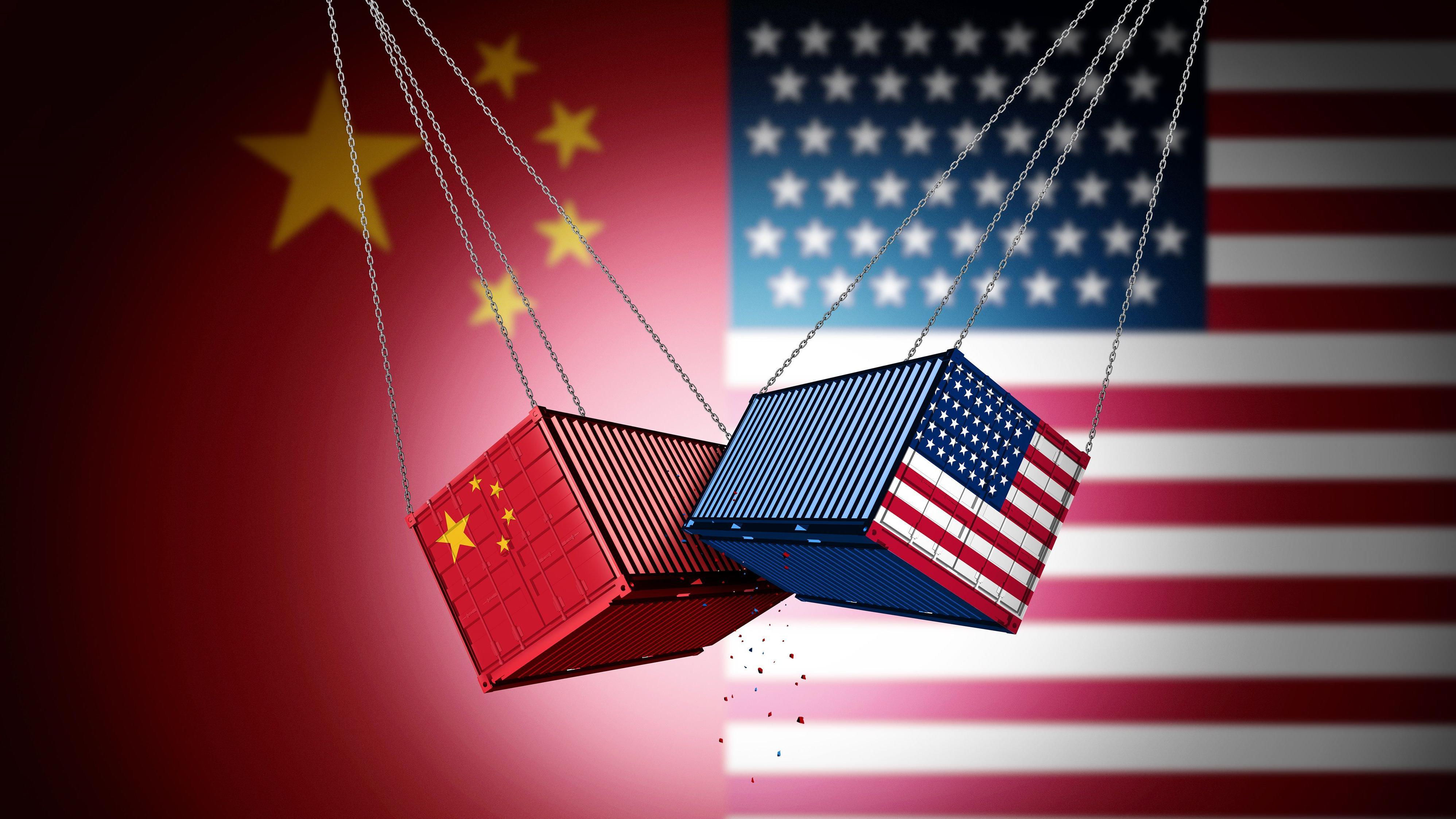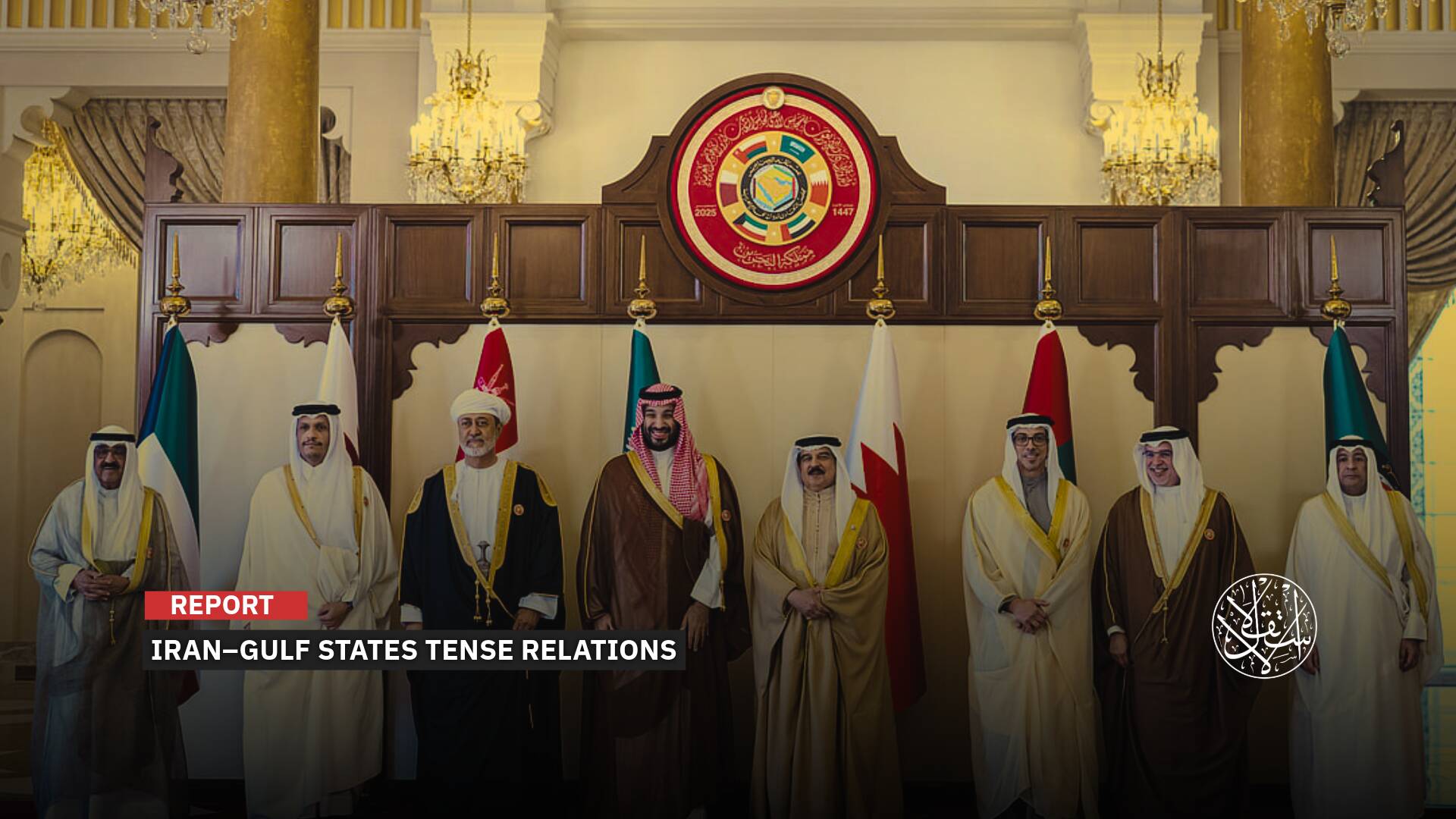Is a Trade War Between the World’s Two Largest Economies Inevitable?

“China recently imposed restrictions on 18 US defense-related companies.”
In a scene reflecting the escalating tensions between the world's two largest economies, angry reactions are emerging from Chinese media outlets to the recent US move to double tariffs on Chinese imports.
While Washington is moving toward more protectionist policies, Beijing—through its major newspapers—asserts that it will "fight to the end" and will not surrender to "trade tyranny."
Senior US trade adviser Peter Navarro believes that China lacks the capacity for a major escalation, while other analysts believe that Chinese President Xi Jinping holds the initiative, having strengthened his domestic influence, giving him greater flexibility to absorb economic shocks.
Despite US President Donald Trump's assertion that the goal of this policy is to reduce the US trade deficit, he risks upending the decades-old global trade system.
This trade war threatens to trigger a global recession and massive inflation, which could wipe out trillions of dollars in market value for major companies.
Trade War
China responded on April 11 to Trump's decisions to impose new tariffs by announcing a 125% increase in tariffs on US goods, signaling a dangerous escalation in a trade war that could lead to a potential global recession.
This announcement came two days after the Trump administration announced that China now faces tariffs of at least 145% on all its exports to the United States, while suspending tariffs on goods from dozens of other countries for 90 days.
“The excessive US tariffs on China represent a serious violation of international economic and trade rules, go against basic economic principles and common sense, and are simply a form of unilateral bullying and coercion,” the Chinese Ministry of Finance said in an official statement.
“Even if the United States continues to impose higher tariffs, it will make no economic sense and will go down in global economic history as a joke,” it added.
Analysts believe that these tit-for-tat tariff escalations make it nearly impossible for trade to continue between the two sides, as tariffs exceeding 35% typically wipe out profit margins for Chinese exporters and turn American products into expensive commodities in the Chinese market.
Although Beijing has continued its policy of reciprocity, it has indicated that this will be the last time it will respond in kind if Trump continues to escalate.
Separately, Beijing announced that it will immediately restrict imports of Hollywood films as part of its response to Trump's escalation.
The Chinese Ministry of Foreign Affairs also issued travel warnings for Chinese citizens traveling to the U.S. and alerts for students wishing to study in Ohio, indicating that China's response also includes the American service sector.
In this context, UBS analysts said that Beijing's announcement that it would not retaliate against any future tariff increases reflects an admission that bilateral trade between the two countries has completely collapsed.
According to the Peterson Institute for International Economics, average US tariffs on Chinese goods are now more than 40 times higher than before the outbreak of the first trade war in 2018.

Economic Risks
In the face of this escalation, China has begun to move diplomatically to rally trade allies.
Chinese President Xi Jinping, during his meeting with Spanish Prime Minister Pedro Sanchez, emphasized that China and the European Union must assume their international responsibilities... and jointly confront unilateral bullying.
Despite the clear economic risks, the Chinese president has shown remarkable intransigence, refusing to make any concessions in the face of Trump's pressure.
“There is no winner in a tariff war, and whoever opposes the world will find themselves isolated,” he said without explicitly mentioning the United States or Trump.
“For more than 70 years, China has relied on itself and hard work in its development, never relying on anyone's grants, and will not submit to any unreasonable oppression,” he added.
Chinese Commerce Minister Wang Wentao also held video calls this week with his counterparts from the EU, Malaysia, Saudi Arabia, and South Africa, in an effort to expand the circle of support to include the Gulf Cooperation Council (GCC) countries, the G20, and the BRICS countries.
Talks between Beijing and Brussels resulted in an agreement to relaunch trade negotiations and establish mutual commitments on electric vehicle pricing, which could lead to a de-escalation of a long-running trade dispute between the two sides.
China not only imposed new tariffs on US imports but also imposed restrictions on 18 US defense-related companies, adding to the nearly 60 US companies punished over Trump's tariffs.
The Chinese yuan has been under intense pressure over the past week, reaching its lowest offshore level since the 2008 global financial crisis.
To contain the yuan's decline, the Chinese central bank asked major state-owned banks to reduce their purchases of US dollars, which led to a slight recovery.
On April 9, the World Trade Organization estimated that trade tensions between the United States and China could reduce goods trade between the two economies by up to 80%.
“Dividing the global economy into two blocs in this way could lead to a long-term decline in global real GDP of approximately 7%,” it stated.

Tense Relations
Analysts believe that Xi has greater maneuverability than Trump, as he is not subject to electoral constraints and faces no direct domestic political challenge after his 2018 abolition of presidential term limits, granting him absolute power to rule indefinitely.
Trump, on the other hand, cannot ignore domestic considerations, especially as the election approaches, despite his previous threats to circumvent the constitution and run for a third term.
In a symbolic move, Foreign Ministry spokeswoman Mao Ning posted on X a video of a speech delivered by Mao Zedong during the Korean War, in which he said, ‘No matter how long this war lasts, we will never yield’.
Although China has backed away from targeting major US companies like Apple, Tesla, and Starbucks, fearing a domestic consumer backlash, it still retains strategic options for retaliation, including shifting its focus to purchasing agricultural products from Brazil instead of the U.S.
Beijing is also considering more sensitive escalation tools, including banning exports of rare earths essential to tech industries, or even selling large amounts of U.S. Treasury bonds, a move that could drive down bond prices, raise U.S. borrowing costs, and destabilize global markets.
As of January 2025, China held approximately $760 billion in U.S. government debt, making it the second-largest foreign holder of such debt after Japan.
There are already signs that some of the $582 billion in goods trade between the two countries has stalled, with U.S. factories canceling orders and some Chinese manufacturers temporarily furloughing their workers.
In the 23 years since China joined the World Trade Organization, access to cheap manufactured goods has become an integral part of the consumer-centric U.S. economy.
China accounted for approximately 13% of total US imports in 2024, and is a source of a wide range of goods, including smartphones, toys, and industrial parts.
What has emerged as a trade war by the U.S. with China underlines the much larger struggle for global dominance between the rival powers and the very real possibility of the military conflict for which both sides are now gearing up intensively.
“China and America Aren't Just in a Trade War. It's a Fight for the 21st Century,” wrote Matt Pottinger and Liza Tobin, both senior China hands and veterans of the first Trump administration.
“Xi and Trump are now in a zero-sum contest for global supremacy,” they argued in the Free Press.
“War between U.S. and China, inevitable? No. Likely? Yes,” political scientist Graham Allison told the Harvard College China Forum last weekend, according to the South China Morning Post.

In a radical shift in US policy, on April 12, Trump exempted tech products from tariffs imposed on China, marking a victory for Beijing in the trade war between the world's two largest economies.
The US president is currently considering exempting semiconductors from tariffs, which would be another victory for the Chinese administration, which has clearly defined Washington.
Despite Trump's retreat from his tough stance, the trade war between Washington and Beijing is far from over, as both sides persist in their refusal to yield to the other.
Sources
- All the twists and turns in the US-China trade war
- In stunning U-turn, Trump walks back some tariffs, triggering historic market rally
- Steeling China for a Fight, Xi Faces His Biggest Test Since Covid
- China hits back at Trump tariff hike, raises duties on US goods
- Why Trump's War With China is Much Bigger Than Trade












